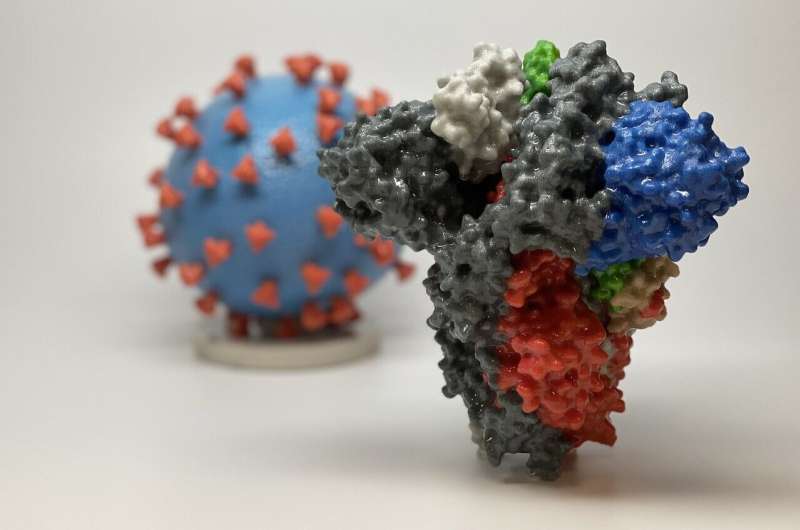January 26, 2022 report
A possible tool for predicting who will experience long COVID

A team of researchers from University Hospital Zurich, the University of Zurich, Uster Hospital, Limmattal Hospital and City Hospital, all in Switzerland, has developed a tool that could possibly predict which patients infected with COVID-19 will develop post-acute COVID-19 syndrome (PACS), also known as long COVID. In their paper published in the journal Nature Communications, the group describes their study of hundreds of COVID patients.
Not long after the pandemic began, doctors reported that some patients who recover from COVID-19 continue to experience symptoms such as a loss of smell and/or taste, difficulty breathing, and what they described as "brain fog," long after they were virus-free. With the pandemic now in its third year, many patients continue to experience PACS for unknown reasons. In this new effort, the researchers studied the medical histories of 175 people who had COVID-19 and 40 people who remained uninfected throughout the study, which lasted for approximately one year. During that time, they found that 82.2 percent of those who had severe infections wound up with long COVID as opposed to just 53.9 percent of the patients with mild infections. They also found that patients with PACS also produced fewer IgM and IgG3 antibodies throughout the course of their infection than did those with milder infections. Antibody levels of infected patients who did not develop PACS rose as infection set in.
The researchers also found that other risk factors played a role, as well—patients with asthma and those who were older tended to be more likely to develop PACS, for example. The researchers combined all these factors to create a risk factor scale and tested it on another 395 COVID-19 patients. They found the accuracy of the scale varied depending on a variety of factors, but overall, found the scale effective for predicting which infected patients would develop PACS. Notably, the scale only applies to people after infection; thus, more work is requried to better understand why patients develop PACS and which people are more at risk should they be infected.
More information: Carlo Cervia et al, Immunoglobulin signature predicts risk of post-acute COVID-19 syndrome, Nature Communications (2022). DOI: 10.1038/s41467-021-27797-1
© 2022 Science X Network

















